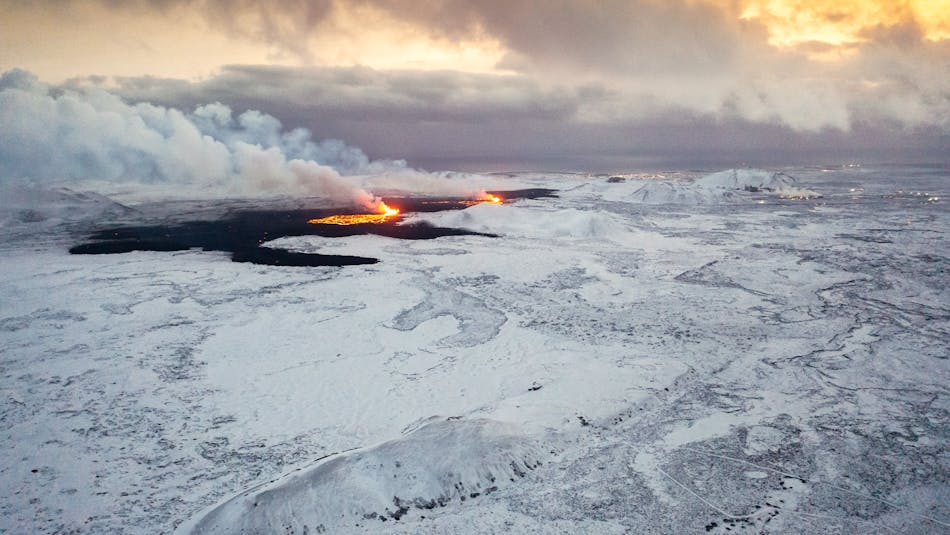
A fissure eruption started on the Reykjanes Peninsula by Hagafell and Stóra-Skógfell at 8:23 PM on March 16. The eruption in Sundhnúkagígar has now been declared over. Photo: Snorri Thor, from previous eruption
Eruption on the Reykjanes Peninsula has ended
A fissure began started on the Reykjanes Peninsula by Hagafell and Stóra-Skógfell on March 16, marking the fourth eruption in the area since December of 2023. The eruption in Sundhnúkagígar crater row has been declared over, from May 9. However, magma collection continues under the Svartsengi. This is stated in an announcement from the Icelandic Met Office.
Monitoring and Preparedness
A global team of geoscientists meticulously monitors the area, backed by Iceland's advanced volcanic preparedness and real-time surveillance systems. Our priority is safety, ensuring that life and tourism in Iceland proceed smoothly. For a detailed look into the recent volcanic activities and their safety implications, Dr. Matthew Roberts from the Icelandic Meteorological Office offers insights through an informative video.
Volcanic activity on the Reykjanes Peninsula
Since October last year, The Icelandic Meteorological Office has observed increased geophysical activity in the area. This activity has led to repeated volcanic eruptions close to the town of Grindavík. The town has been evacuated with brief intermissions since November 10th to guarantee the safety of residents. The eruption does not pose an immediate threat to people, and no further evacuations are necessary at this time.
All Icelandic airports are open, and all flights to Iceland are operating on schedule. The impact of these types of fissure volcanic eruptions impact is limited to specific, localized areas near the eruption site. Notably, the previous eruptions on the Reykjanes Peninsula have not disrupted air travel to and from the country in any way.
- Iceland Ministry for Foreign Affairs: FAQ regarding flights and other info
The Icelandic Meteorological Office, the Department of Civil Protection and Emergency Management, and a team of scientists from the University of Iceland diligently monitor the situation and analyze developments.
- The Icelandic MET office: Latest information on the seismic activity and development of events.
Iceland is well-acquainted with volcanic activity, having experienced three previous eruptions nearby on the Reykjanes Peninsula in 2021, 2022, and 2023. Icelandic authorities and the public are thoroughly prepared for such events, and the country boasts some of the world's most sophisticated volcanic preparedness protocols. Iceland's geoscientists are extensively experienced in managing volcanic activity.
More information:
- The Icelandic Road Administration: Information on road conditions and closures in the Reykjanes region
- Safetravel: Updates on safety
- The Icelandic National Broadcasting Service: News coverage
- Visit Reykjanes: Updates from the region
For press inquiries, please contact [email protected].